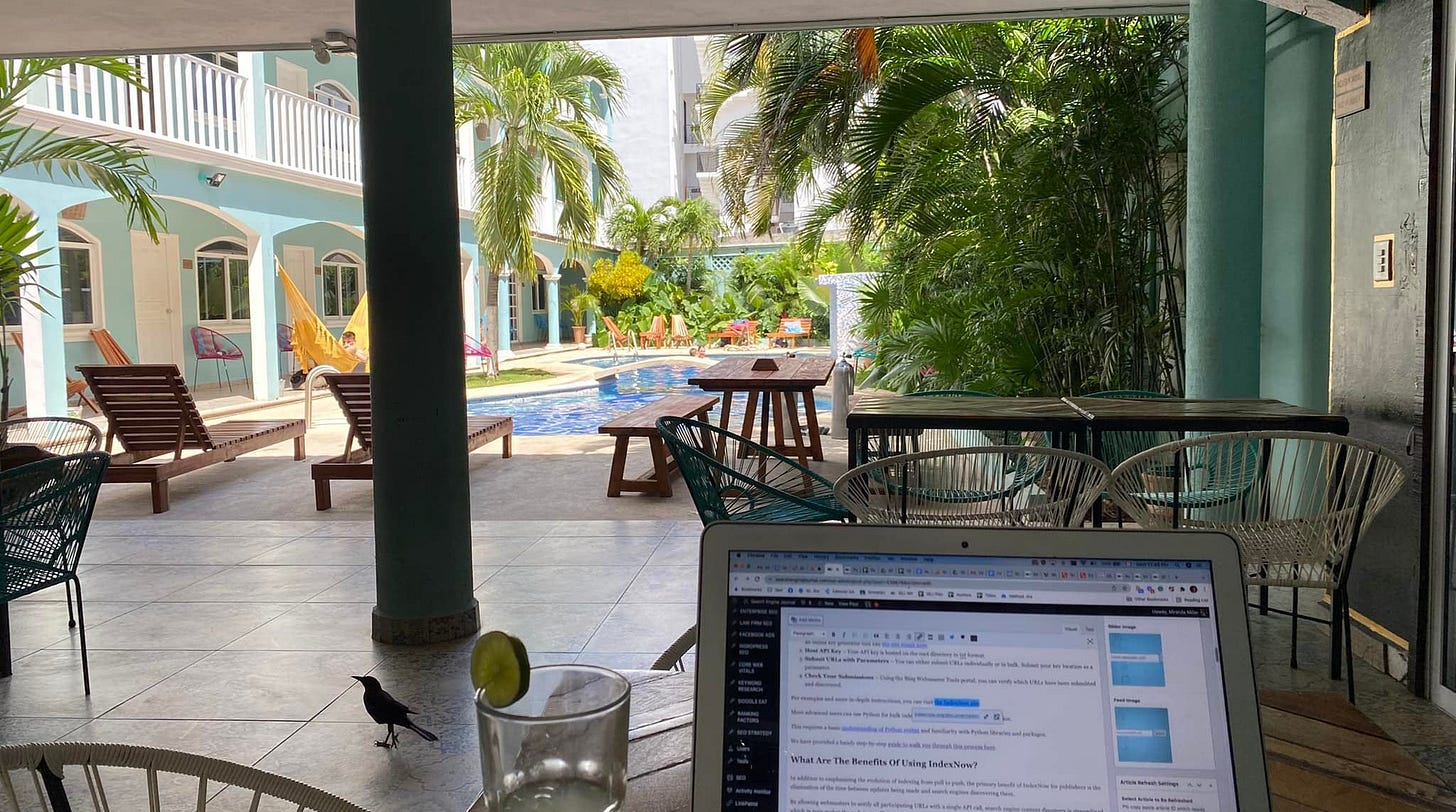Ditch the Office, Keep the Paycheque: Earning Remotely on Your Terms
Welcome to One Step Closer, a dose of inspiration and practical tips for building your location-independent life. In this edition: real talk about breaking into remote work.
Unless you’re independently wealthy or retired, figuring out how to make money online is one of the biggest hurdles to going remote. This is especially true if you don’t have prior experience working online.
But here’s the good news: you don’t need a remote-friendly degree, years of experience, or an inside connection to get started.
What you do need is the right approach, a willingness to learn, and a strategy for making your skills valuable online.
This week, let’s talk about how to get remote jobs and contract work, even if you’re starting from scratch.
Trying to land that first remote gig is tough. If you’re trying to transition into remote work, you might feel stuck in a frustrating loop:
Every job listing wants “previous remote experience.”
The platforms that promise easy freelance gigs feel overcrowded.
You don’t know where to start, or whether your existing skills even translate online.
I get it. I’ve been there. And so I want to share the single biggest lesson that changed everything for me…
One Step Closer is our no-fluff series on taking small, intentional steps toward a freer, location-independent life — without burning out or starting over.




